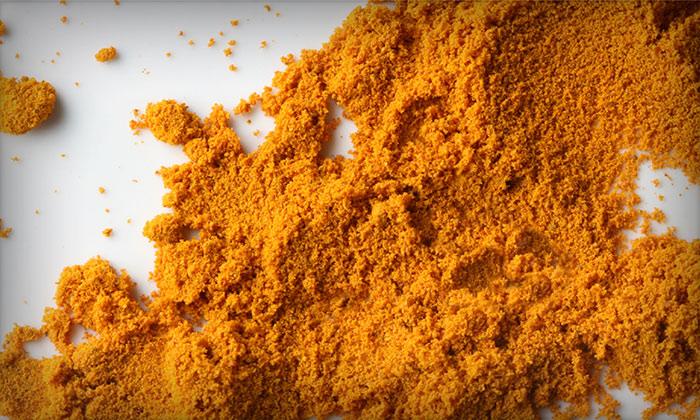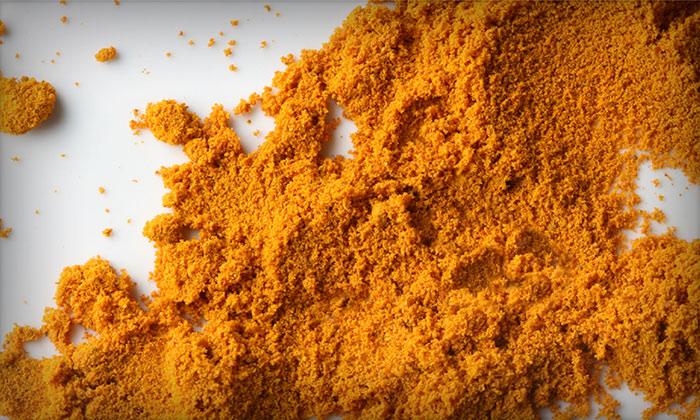
Credit: Steven Jackson
When you dine on curry and baked apples, enjoy the fact that you are eating something that could play a role starving — or even preventing — cancer.
New research from The University of Texas at Austin identifies several natural compounds found in food, including turmeric, apple peels and red grapes, as key ingredients that could thwart the growth of prostate cancer, the most common cancer afflicting U.S. men.
Published online this week in Precision Oncology, the new paper uses a novel analytical approach to screen numerous plant-based chemicals instead of testing a single agent as many studies do, discovering specific combinations that shrink prostate cancer tumors.
"After screening a natural compound library, we developed an unbiased look at combinations of nutrients that have a better effect on prostate cancer than existing drugs," says corresponding author Stefano Tiziani, assistant professor in the Department of Nutritional Sciences and Dell Pediatric Research Institute at UT Austin. "The beauty of this study is that we were able to inhibit tumor growth in mice without toxicity."
During the past decade, some cancer research has highlighted the potential therapies found in plants, including chemicals found in foods such as turmeric, apple peels and green tea. These compounds minimize one of the risk factors for cancer, inflammation within the body. People who have chronic inflammation because of chronic infection, autoimmune disease or conditions such as obesity have a higher cancer risk because of damage to normal cells.
The researchers first tested 142 natural compounds on mouse and human cell lines to see which inhibited prostate cancer cell growth when administered alone or in combination with another nutrient. The most promising active ingredients were then tested on model animals: ursolic acid, a waxy natural chemical found in apple peels and rosemary; curcumin, the bright yellow plant compound in turmeric; and resveratrol, a natural compound common to red grapes or berries.
"These nutrients have potential anti-cancer properties and are readily available," says Tiziani. "We only need to increase concentration beyond levels found in a healthy diet for an effect on prostate cancer cells."
The new research paper also demonstrates how the plant-based chemicals work together. Combining ursolic acid with either curcumin or resveratrol prevents cancer cells from gobbling something that they need to grow, glutamine. This is a neat solution: blocking the uptake of a nutrient needed by prostate cancer cells with nutrients that are commonly in the human diet.
###
Funders of this research include that National Institutes of Health and the University of Texas System. The experiment was designed, analyzed and written up with coauthors Alessia Lodi, John DiGiovanni and Achinto Saha, all of UT Austin. Additional authors include Xiyuan Lu, Bo Wang, Enrique Sentandreu, Meghan Collins, all of UT Austin; and Mikhail Kolonin of The Brown Foundation Institute of Molecular Medicine at the University of Texas Health Science Center in Houston.
Media Contact
Kristin Elise Phillips
[email protected]
512-232-0654
@UTAustin
http://www.utexas.edu
Related Journal Article
http://dx.doi.org/10.1038/s41698-017-0024-z
############
Story Source: Materials provided by Scienmag





